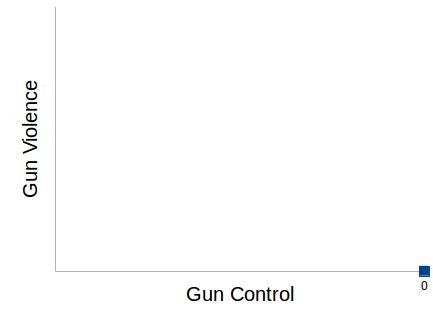To all those who participated in the discussion following this tragedy,
The Parkland, FL school shooting last month was, without doubt, a tragedy. We as a species can all attest to the immense loss we feel when a child’s life is cut short, no matter the cause. Especially heinous is the crime committed by one not much older than those attacked and in response to seemingly ephemeral slights. We all want these tragedies to end. Our thoughts diverge, however, on the manner in which we accomplish that end. While the details of the event remain nebulous, the rhetoric surrounding guns has become excruciatingly palpable over the last month. Many of my friends and neighbors, once silent on all things political, have now joined the discourse. I too have felt the acute urge to publicly broadcast my opinions on the matter. If social media truly measures what is on the minds of its users, our nation has become saturated with thoughts of guns. Perhaps the Parkland shooting is not an isolated cause but simply a catalyst for the political turmoil we now encounter daily. Further still, perhaps this event exposes a deeper principle upon which we as humans have been building for millennia.
The purpose of this letter is not to persuade you in any direction on the subject of guns in the US. Inevitably I will taint it with my personal opinions, but I hope that you can accept my good will on the matter and take my core message to heart. If you will not, perhaps an impartial opinion (by virtue of being ancient) might convince you.
If any source replicates my goal most completely, it is Leviathan written by Thomas Hobbes in 1651. In fact, this letter’s primary purpose is to convolve Hobbes’ master work with recent events. Hopefully this will transform the current discussion from an argument of kind to a discussion of degree.
Without further caveats to soften the blow, I believe the current rhetoric on guns is fundamentally a discussion on the magnitude of a government’s ability to take away the rights of its citizens to ensure the protection of other rights. Many of you will cringe upon reading “take away the rights” and rightly so. We all wish to be free from external oppression, whether that be from a massive, possibly corrupt government institution or a lowly passive aggressive neighbor. I shall skip all the hypotheticals dictating the state of nature and the history of government and proceed straight to the balance of gun rights in the US.
Currently, the debate appears polarized into two viewpoints. One group sees gun ownership as a fundamental right of the individual, sometimes tied directly to the US Constitution. Such a right (by definition) cannot be altered by any government. The other group denies that gun ownership is a inviolable right. Subsequently, a government has the power to impose any restrictions they deems fit. Such groups likely differ on their opinions of the sanctity and corruptibility of government power as well, but that is a question of the purpose of gun ownership, not of the right to gun ownership. The count of justifications here is as many as the number of opinions themselves. For instance, both sides have recently suggested solutions and the other side has vehemently opposed it on the basis of practicality. Hopefully my broad characterizations do not dissuade you from accepting my model. Essentially, one side believes anyone should be able to obtain a gun without infringement of any kind. The other side believes that anyone should be able to obtain a gun only after approval from the government. Upon each foundation a side builds solutions without acknowledging the opposition is supported by structures unlike their own. This is an argument of kind: right versus proviso. No progress can be made without finding common ground upon which to build.
I suggest that common ground can be found in the balance of the right to life and the right of gun ownership. A discussion of degree–one right versus another. Before even the US Constitution was drafted, the right to life and liberty were affirmed:
We hold these truths to be self-evident, that all men are created equal, that they are endowed by their Creator with certain unalienable Rights, that among these are Life, Liberty and the pursuit of Happiness.
I do not wish to get into a discussion of semantics (which may be my downfall) –suffice to say that the writers saw fit to separate life and liberty into distinct rights. This distinction is made all too real when considering gun rights and the space between complete gun restriction and complete open access. Guns are a necessary but not sufficient cause of gun violence. To belabor the point, if you could instantly remove all guns from the US (practicality aside), gun use would plummet to zero just as quickly. If one does not have a gun, one cannot use a gun.

Work in Progress
In the case of an active shooter situation, the removal of a single gun belonging to that shooter certainly prevents more immediate deaths.
From this single datum (maximum gun control, zero violence), can we extrapolate across the range of gun control and gun violence? Probably not. No doubt people would find ways to cause harm to others, and violence in other forms would likely increase.